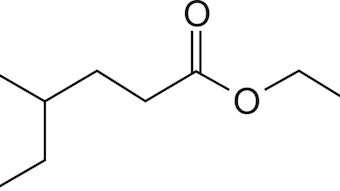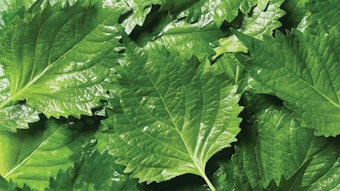Seeking to create “a network of knowledge among our perfumers that ultimately will benefit our clients,” Symrise’s Roberto Ascoli (vice president Scent & Care division, president Symrise France and director of the Beauty Care Creative Centre) recently spoke with P&Fnow about the company’s Perfumers’ Academy, its goals and how it will grow the skills of its perfumers.
Looking to nurture its noses, Symrise’s new program establishes what Ascoli describes as “a lifelong exercise whereby we keep our perfumers motivated, trained and updated.” Broken into three tiers—undergraduate (Symrise Perfumery School, run by Egon Oelkers), graduate (intermingling of junior and senior perfumers in mentoring scenarios and continuing education) and post-graduate levels (exchange programs with customers and global cultural intelligence-gathering excursions)—the program primarily focuses on continuing education and client-service skills.
Tier 1: The undergraduate level program lasts two to three years. Graduates then become junior perfumers.
Tier 2: The graduate level commingles junior and senior perfumers, some of whom may require “refreshment in one area or another or may benefit from specific training,” explains Ascoli. Junior perfumers will take part in mentoring and cross-regional exchange programs that will allow them to relocate for three to six months to learn from more experienced staff.
“More senior perfumers will benefit from coaching training for mentors,” says Ascoli. In addition, some participants will learn skills in communication, presentation strategies, teamwork, finance and numerous levels of chemistry. Ascoli explains that the program reinforces perfumers’ existing skills, while adding new competencies and refreshing technical abilities as some staff may not have taken a chemistry course in some 20 years.
Tier 3: The program’s top post-graduate phase is divided into two parts. The first is what Ascoli calls “client intimacy chemistry enhancement,” in which a number of perfumers will spend a week or 10 days working on site at a client company to gain insights into customers’ businesses and their needs. Symrise wants its perfumers to know what “influences the outcome of a product, how legislation is influencing the formulation of products and what role a perfume plays … with the base product of a shampoo, laundry detergent or fine fragrance.”
The second half of the post-graduate level involves sending excursions of staff around the globe to gather inspiration and market intelligence from specific global regions. First up is India. “We send a group of seven perfumers with a botanical expert, somebody from R&D, somebody from marketing or evaluation, and a photographer/filmmaker.” India was chosen, according to Ascoli, because “we regard it as significant in terms of creativity today and, more importantly, tomorrow.”
Ascoli explains that all perfumers will take part in the program at some point, whether gathering market intelligence overseas or taking a chemistry seminar. “It’s an ongoing process of nurturing our talent via motivating and skill-enhancement activities.”
Read about the changing relationship between the perfumer and clients in the January issue of Perfumer & Flavorist magazine.










